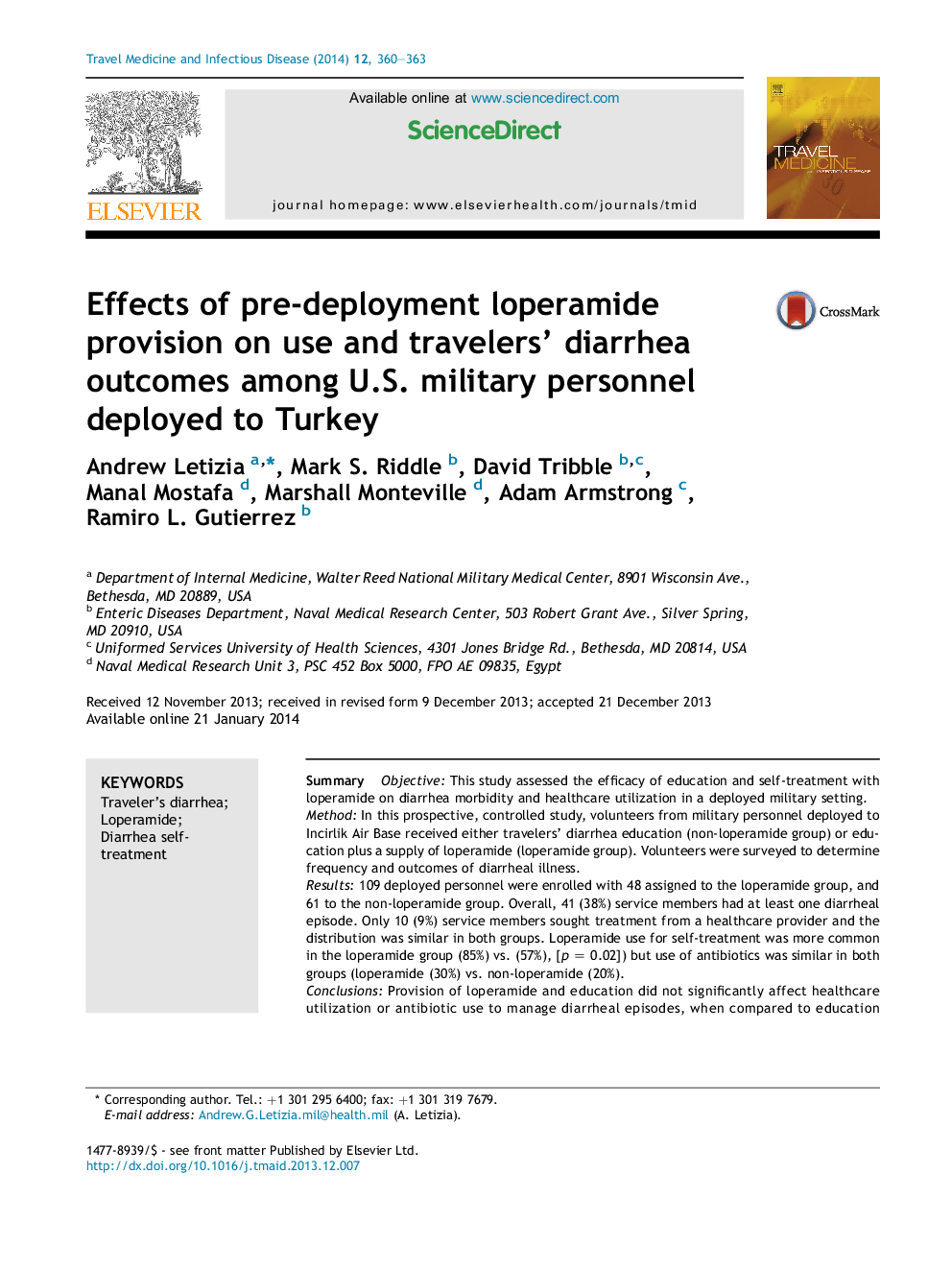| Article ID | Journal | Published Year | Pages | File Type |
|---|---|---|---|---|
| 3392909 | Travel Medicine and Infectious Disease | 2014 | 4 Pages |
SummaryObjectiveThis study assessed the efficacy of education and self-treatment with loperamide on diarrhea morbidity and healthcare utilization in a deployed military setting.MethodIn this prospective, controlled study, volunteers from military personnel deployed to Incirlik Air Base received either travelers' diarrhea education (non-loperamide group) or education plus a supply of loperamide (loperamide group). Volunteers were surveyed to determine frequency and outcomes of diarrheal illness.Results109 deployed personnel were enrolled with 48 assigned to the loperamide group, and 61 to the non-loperamide group. Overall, 41 (38%) service members had at least one diarrheal episode. Only 10 (9%) service members sought treatment from a healthcare provider and the distribution was similar in both groups. Loperamide use for self-treatment was more common in the loperamide group (85%) vs. (57%), [p = 0.02]) but use of antibiotics was similar in both groups (loperamide (30%) vs. non-loperamide (20%).ConclusionsProvision of loperamide and education did not significantly affect healthcare utilization or antibiotic use to manage diarrheal episodes, when compared to education alone. Further prospective studies will either need a very large patient population to power them or should use other primary end points such a functional assessment in addition to seeking care.
